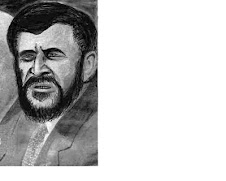Jonathan Rhys Meyer's character in Woody Allen's "Match Point" starkly illustrates one of the writer/director's own quips: "...His lack of education is more than compensated for by his keenly developed moral bankruptcy". A phrase that, not coincidentally as it turns out, is also a spot-on description of Clyde Griffiths, the sad, rather pathetic protagonist in Theodore Dreiser's novel of murky emotions and desperate greed, "An American Tragedy".
Although Wikipedia says the movie "borrows heavily" from Dreiser's novel, the more accurate phrase would be, "unabashedly lifts" the entire plot and, via some adept manipulations, modernizes it and makes it adaptable to Mr. Allen's medium of choice.
In Dreiser's novel, Clyde Griffiths is not only related to someone in the higher echelons of society, he even closely resembles his cousin, making his initial employment as a drudge unacceptable to his uncle who encouraged him in his move from Chicago to upper state New York, and employs him, as well as his own son, in his Company. That leads to Clyde's promotion to floor manager, overseeing a workforce composed almost exclusively of women, the rule being, one must not fraternize with the lovely ladies over whom you preside.
Naturally one of the delectables proves irresistible to Griffith's lonely romantic yearnings. And Rhys-Meyers is a perfect Clyde Griffiths, only Allen puts the forbidden fruit out of reach by casting her as the fiancee of his future brother-in-law. From there it's by now almost stock:
The seduction, the pregnancy, the insistence on the part of the woman to have his illegitimate baby, the phone calls, the threatened exposure, the murder, which, as commented on by the police, appeared so haphazardly planned as to make it seem like he wanted to get caught, the police's discovery of a diary kept by the murder victim of which the murderer was ignorant, the confrontation with the authorities, the investigator's confidence that our erstwhile hero is in fact our killer.
But this is not to criticize or harangue Mr. Allen for his uncredited lifting of Dreiser's character and plot, but more to marvel at his directorial handling of Jonathan. For we are confronted here not with the same person who appears in "The Children of Huang Shi", but instead with the word made flesh, as Dreiser's Clyde Griffiths appears, as if produced by alchemy, in the cool, bland exterior of Rhys-Meyers, hiding an amoral, materialist, impassioned pretender to wealth who sees nothing in the upper class personality that makes them any more deserving than himself of all the riches and luxuries they take for granted, but which will always, unless he connives to make it so, remain out of his purview.
No. For me, what caught my eye and made for a strange (stretched?) analogy, was the similarity between Mr. Allen's reaching back into the past for a vehicle on which to ride into the future. The reason I say stretched, is because it made me wonder if there wasn't an analogy there of the current Fed. By placing an "expert", in the form of Bernanke, at its head who was a student of the Great Depression, and who fancied himself capable of steering the economy as though it were a car, it was fancied he could orchestrate an economic crash, (blandly referred to as "demand destruction", in economists' parlance), in order to slow global growth (and therefore escalating oil consumption), but one from which we could emerge badly shaken, but not severely injured.
But why would he want to do that?
For that we must not only believe the DOE and United States military's Joint Forces Command's projections of future oil production, and its inability to meet projected oil demand, but also realize the utter dependency of the globalized industrial economy, not only on cheap energy, but on that cheap energy coming, in large part, from petroleum and its byproducts.
This was an alarm that was sounded by none other than Dick Cheney in the late 90's, yet not mentioned once during his 8-year tenure in the Bush White House. Because then, before it came to light that the reserves expected in the Caspian basin simply were not there in anywhere near the quantities that had been rosily predicted, Cheney believed peak oil production was something that was in a faraway future.
But by the turn of the century all that had changed. To those, such as Cheney, who had an insider's knowledge that Peak Production was rapidly approaching, it was/is tantamount that the public know nothing about it. Because if peak oil production's imminence were known to the public, it would have the same profound effect on their knowledge of the crimes of the Bush Administration, the Financial industry, and the rest of the Superclass, as the Police's discovery of the murdered woman's Diary in both "The American Tragedy" and Allen's "Match Point".
Namely it would lay bare the fact that, just as in the financial industry, where risk has been surreptitiously collectivized, and profits privatized, the risks associated with the onset of peak oil have been SUV'd onto a hoodwinked public that believes the black gold 'll flow forever, encouraging them to take on more and more debt, believing in a glorious future that will pay for it, and keeping the bank accounts of the Superclass expanding, when all along, that smug band of Oligarchs is fully aware that the party's nearing its climax and the oil-filled punch bowl's about to be taken away, leaving the hoi polloi holding a bag of empty promises and unpayable debt.
So unlike Dreiser's American Tragedy, which concludes with the long trial and execution of the murderer, Woody Allen's ending has him getting off scot-free, with someone else taking the blame for his crime. That is how the denouement of our own American Tragedy will end, with those believing that the oil would flow forever, being blamed, like those who took out subprime loans, for their own credulity, and those who blatantly lied to their face not only flaunting their riches, but, just as Wall St is doing now, patronizingly sneering at the rest of us for being stupid enough to let them. Match point and SET.
Wednesday, April 28, 2010
Subscribe to:
Post Comments (Atom)



















































No comments:
Post a Comment